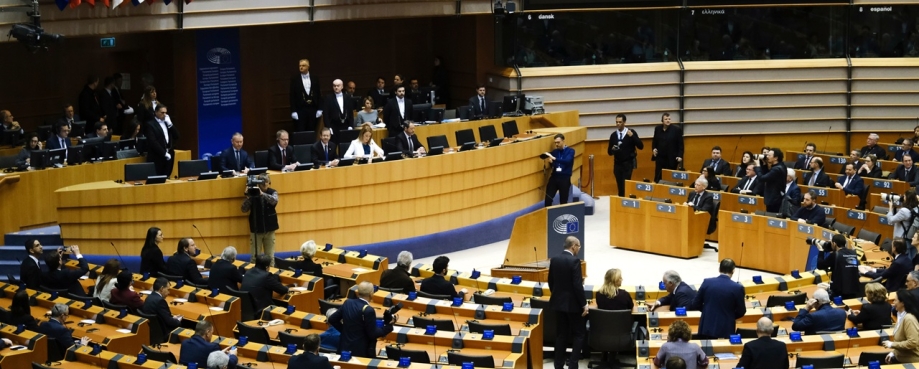
The European Parliament’s decision to approve the proposal delays the implementation of key laws such as the Corporate Sustainability Reporting Directive (CSRD) and the Corporate Sustainability Due Diligence Directive (CSDDD).
This is another step back for human rights and environmental due diligence and reporting, which undermines the credibility of this process and fosters uncertainty among companies and at the expense of workers, communities and the environment.
ETI urges policymakers to pause and reflect on the wide negative consequences that may follow if the Omnibus proposal is adopted in its entirety.
Background
On 26 February 2025, in response to a request from EU leaders, the European Commission presented two ‘Omnibus’ packages aimed at simplifying existing legislation in the areas of sustainability and investment. On 20 March 2025, leaders called on co-legislators to prioritise these simplification packages, aiming to finalise them as quickly as possible in 2025. During this meeting, the European Council specifically urged co-legislators to adopt the ‘Stop-the-clock’ mechanism promptly, no later than June 2025.
Following agreement by the European Council on 26 March, this proposal was sent unchanged to the European Parliament as a request for urgent procedure. Fastrack was approved on 1 April, with today’s vote deciding dates of application for the CSRD and CSDDD.
What does this mean?
The ‘Stop-the-clock’ mechanism looks to postpone:
- by two years the entry into application of the Corporate Sustainability Reporting Directive (CSRD) requirements for large companies that have not yet started reporting, as well as listed SMEs, and
- by one year the transposition deadline and the first phase of the application (covering the largest companies) of the Corporate Sustainability Due Diligence Directive (CSDDD).
While a proposal to delay application until 2040 was included in today’s vote, this was rejected by EU Parliament. A decision which ETI welcomes.
What are the consequences of further delay?
These delays risk creating an environment of confusion and uncertainty for all stakeholders involved, disincentivising early implementation of these directives by responsible business. Furthermore, they risk a global depriortisation of human rights and environmental due diligence by companies and waste an opportunity to create a ‘level playing field’, unfairly impacting those responsible companies already implementing these requirements.
Delaying the enforcement of CSRD and CSDDD risks weakening and undermining corporate accountability, climate action, access to remedy and the progress made by policymakers, civil society, trade unions, and responsible business to date.
Next steps
The proposal will now go to the EU Council for formal approval ahead of publication in the Official Journal. ETI continues to urge EU policymakers to retain the scope and ambition of CSDDD and CSRD and avoid further damage to these landmark directives.
At ETI, we will continue working with companies, NGOs and trade unions, to ensure those businesses committed to human rights are supported to address their business impacts through robust human rights due diligence, meaningful stakeholder engagement and credible multistakeholder collaboration.
